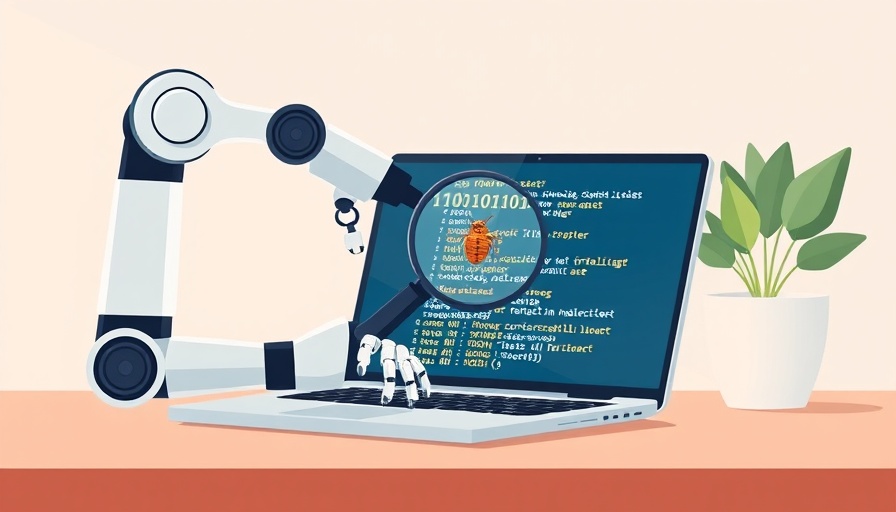
Agentic AI is Changing Offensive Security Forever
The rise of Agentic AI is transforming the world of offensive cybersecurity by introducing autonomous and self-directed systems that learn from their environment and make decisions without constant human oversight. This technology has come a long way, shifting from traditional AI systems to active agents capable of strategic reasoning and multi-step problem-solving in response to cyber threats.
Understanding Agentic AI's Role in Cybersecurity
Emerging from advancements in machine learning and natural language processing, Agentic AI not only interprets data but also executes complex tasks that were once solely in the realm of human capability. For instance, according to a report from Global Security Review, companies are beginning to automate intricate security workflows, moving away from manual processes toward agentic systems that quickly adapt to online threats.
Practical Applications: Real-World Use Cases
Within the realm of offensive security, Agentic AI offers a range of powerful applications:
- Automated Threat Detection: By continuously monitoring digital environments, these agentic systems can identify and address vulnerabilities before they escalate into serious issues.
- Enhanced Incident Response: AI agents can autonomously respond to security threats, isolating compromised systems and managing recovery processes with unparalleled speed.
- Efficiency in Penetration Testing: Automation of pentesting protocols allows organizations to simulate attacks and assess their defenses without the need for constant human direction, as highlighted in multiple studies on the benefits of AI-driven cybersecurity.
Benefits of Agentic AI in Security Operations Centers (SOCs)
Implementing Agentic AI can yield significant advantages for SOC teams:
- Reducing Mean Time to Response (MTTR): Agentic AI accelerates threat remediation, allowing teams to prioritize high-value tasks rather than getting bogged down in repetitive alerts.
- Boosting Analyst Efficiency: By automating triage and analysis, AI frees analysts from mundane tasks, improving their job satisfaction and retention.
- Detecting More Attacks: With the power to analyze vast amounts of data concurrently, agentic AI enhances the organization’s ability to spot potential threats that could be overlooked by human analysts.
Challenges and Considerations
As Agentic AI continues to evolve, it brings with it several challenges that organizations must navigate:
- Lack of Transparency: The opaque nature of AI decision-making can create skepticism among security teams. Ensuring clarity in how decisions are made is essential to foster trust.
- Data Quality Issues: AI's effectiveness is closely tied to the quality and diversity of the training data it consumes. Poor data can lead to incorrect predictions and missed threats.
- Dependence on Human Oversight: While AI can reduce human involvement, it cannot eliminate the need for skilled personnel to oversee its operations and ensure accuracy.
The Future of Cybersecurity with Agentic AI
As we look towards the future, the integration of agentic AI will undoubtedly redefine how organizations approach offensive cybersecurity. Just as tech giants invest heavily in this technology, understanding its implications will be crucial for businesses aiming to protect against increasingly sophisticated cyber threats.
In conclusion, embracing agentic AI in offensive security requires a balance between leveraging its capabilities and addressing the necessary ethical considerations. This amalgamation of technology can indeed enhance productivity and security resilience when implemented thoughtfully.
If you're passionate about cutting-edge technologies and their impact on cybersecurity, follow our updates on AI news and ensure you're at the forefront of this transformative journey.
 Add Row
Add Row  Add
Add 


Write A Comment